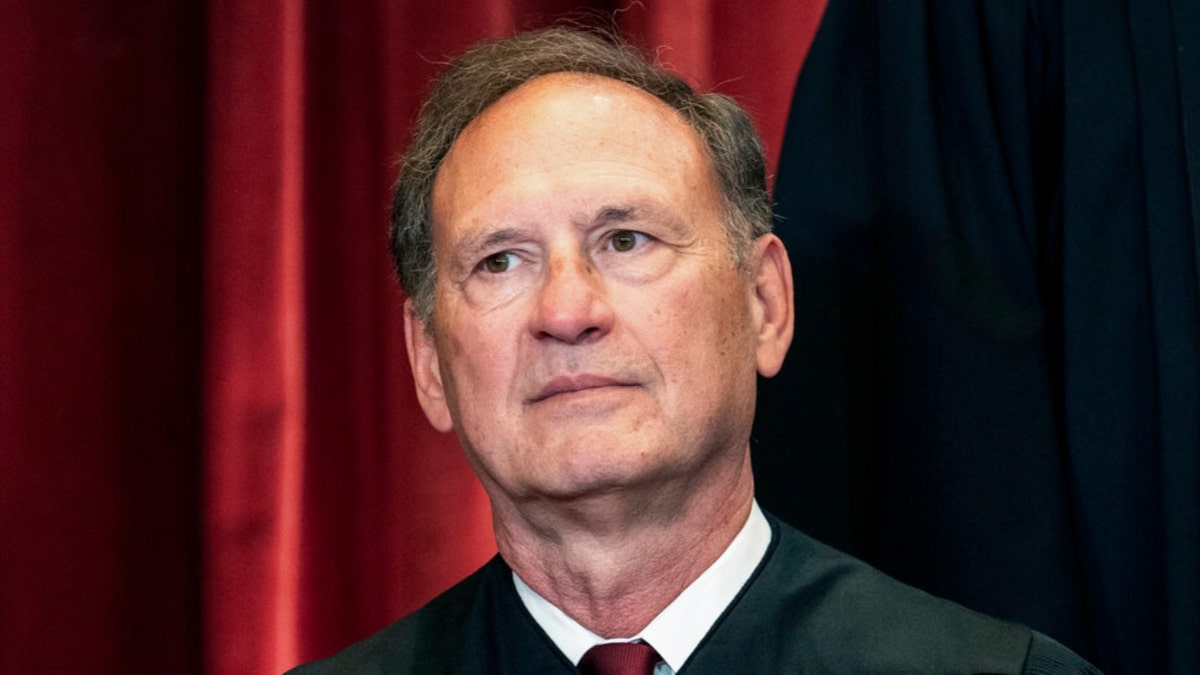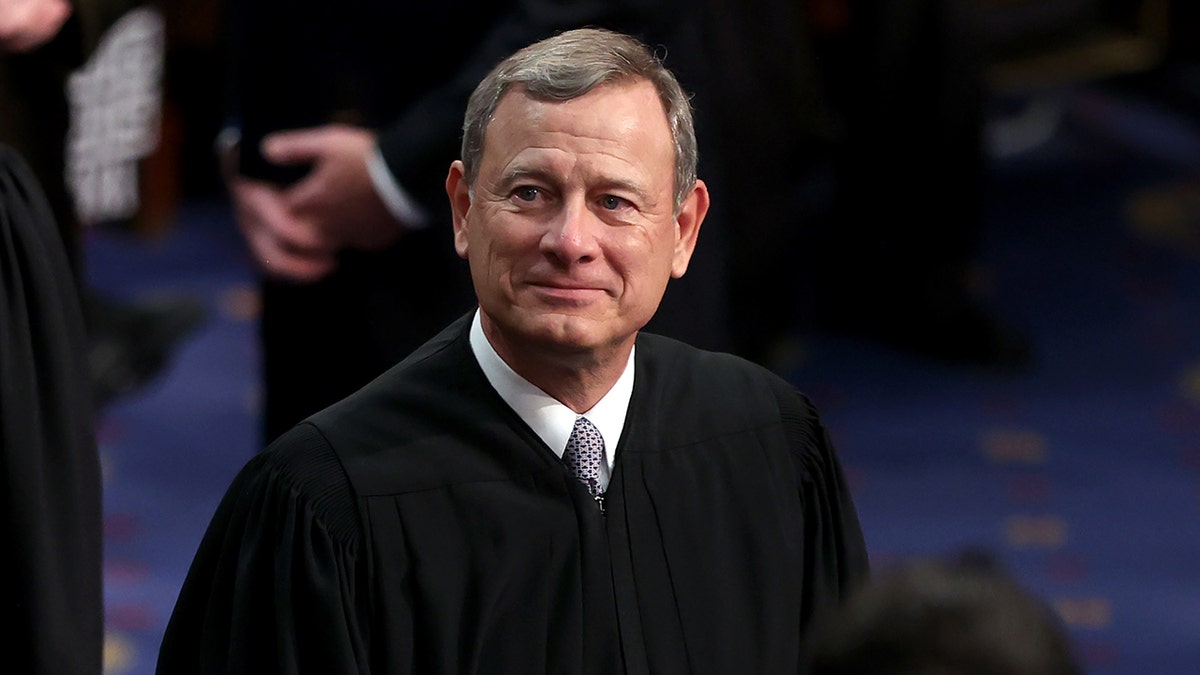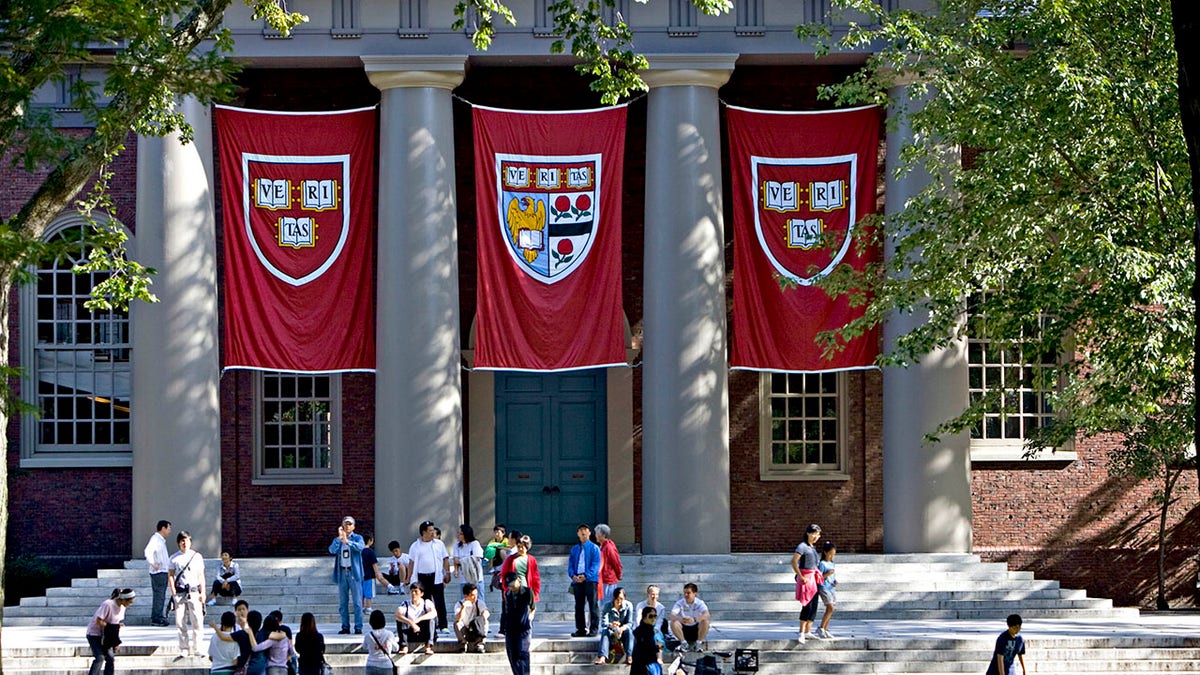Asian American groups rally before the Supreme Court to protest affirmative action
Asian American equal rights groups rallied in support of two landmark affirmative action cases the Supreme Court will be hearing on Monday.
Chief Justice John Roberts and Justice Samuel Alito both grew noticeably frustrated Monday with Harvard lawyer Seth Waxman during a case on Harvard's affirmative action policy in admissions.
The Supreme Court heard two cases Monday on affirmative action in college admissions, one involving Harvard and another, heard earlier in the day, against the University of North Carolina. A group called Students for Fair Admissions brought both cases.
Alito pressed Waxman on a "personal score," which is assigned to prospective Harvard students during the admissions process and often ranks Asian students lower than those from other races. But Waxman didn't answer Alito's questions directly, leading Alito to get agitated with the lawyer.
"You refer to the personal score. And that's a score that Harvard gives based on character traits such as integrity, courage, kindness and empathy. But the record shows that Asian student applicants get the lowest personal scores of any other group," Alito said. "What accounts for that?

Justice Samuel Alito became frustrated with a lawyer for Harvard during oral arguments in a case on affirmative action in college admissions Monday. (Erin Schaff/The New York Times via AP, Pool, File)
"It has to be one of two things," Alito continued. "It has to be that they really do lack integrity, courage, kindness and empathy to the same degree as students of other races. Or there has to be something wrong with this personal score."
Waxman began citing a 1983 study on female graduate school applicants. But Alito cut him off and asked Waxman the same question again.
Waxman responded with a winding answer, in which he said extracurricular ratings and academic ratings for Asian Americans in Harvard were generally higher. He also said, "the only model that can be created to figure out what was going into the personal rating, couldn't look at almost anything that admissions officers look at in those ratings… There's no way that it could model what the guidance counselor letters said, what the teacher letters said, what the interviewers' letters said."
The Harvard lawyer also objected to the fact that the numbers Alito cited don't include athletes, legacies, members of the dean's interest list and children of Harvard employees. Asian members of those groups, he said, fared better.

Supreme Court Chief Justice John Roberts told a Harvard lawyer Monday that "we did not fight a civil war about oboe players." (Julia Nikhinson-Pool/Getty Images)
JUSTICES HEAR ARGUMENTS OVER AFFIRMATIVE ACTION IN HARVARD, UNC SUPREME COURT CASES
But Alito wasn't satisfied, saying he needed a fuller explanation.
"I still haven't heard any explanation for the disparity between the personal scores that are given to Asians. They rank below Whites. They rank way below Hispanics, and really way below African Americans," Alito said. "What is the explanation for that?"
Waxman answered by referring to a lower court, which said there was, "No credible evidence that corroborates the improper discrimination suggested" in the case.
"I'll try it one more time," Alito responded, apparently growing frustrated. "The district court found quote, ‘a statistically significant and negative relationship between Asian American identity and the personal rating assigned by Harvard admissions officers.’"
A TIMELINE OF SUPREME COURT CASES ON AFFIRMATIVE ACTION IN COLLEGE ADMISSIONS
Waxman agreed, but argued that, "the record will not allow a full explanation for that." He reiterated that the court didn't find a specific explanation for why the numbers for Asian applicants were poor, and downplayed the role the personal scores have on final admissions. Alito tried to ask a question again, but Waxman continued talking. Eventually Roberts needed to step in and tell Waxman to stop talking, so Alito could speak.
"I'm sorry, I'm not trying to filibuster you," Waxman responded.

Harvard University's affirmative action policies that include race in admissions are under Supreme Court scrutiny. (Michael Fein/Bloomberg via Getty Images)
Alito, referring to the significance of the personal scores, asked, "does it make a difference or doesn't it make a difference?" Waxman responded by saying it doesn't make a major difference.
Roberts then began questioning Waxman, and the pair in short order raised their voices at each other. Roberts argued that by including race as a factor in Harvard's admissions, in some cases it could be the factor that determines whether a student gets in or does not.
CLICK HERE TO GET THE FOX NEWS APP
Waxman admitted that was the case "for some highly qualified applicants," just as "being, you know, an oboe player in a year in which the Harvard-Radcliffe Orchestra needs an oboe player," could determine admission.
"We did not fight a civil war about oboe players," Roberts shot back. "We did fight a civil war to eliminate racial discrimination as a matter of considerable concern."
The case is likely to be decided by the end of the Supreme Court's current term in late June or early July 2023. Justice Ketanji Brown Jackson recused herself from the case, as she was a member of the Harvard University Board of Overseers prior to her confirmation earlier this year. Jackson participated in the University of North Carolina case.














































